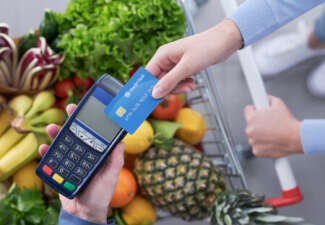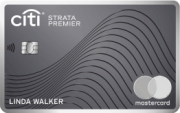The content on this page is accurate as of the posting date; however, some of the offers mentioned may have expired.
“Radio frequency identification” tags are being put into more and more plastic payment cards to allow users to conduct quick, contactless payments. Basically, an RFID credit card is equipped with an embedded antenna and electronic tag that allows it to transmit all payment information to a reader. It is this technology that allows motorists to drive through toll booths with an EZ Pass and consumers to wave their card at the resister in lieu of having a cashier take it and swipe it through a machine.
The potential downside is that RFID readers are available for anyone to purchase. When sensitive information is being transmitted through the air, it’s more difficult to control who is able to access it. Many consumers are worried about falling victim to identity fraud.
While having your card scanned by a crook carrying a RFID reader is a potential risk, experts claim it is a limited one. Card readers work up to a maximum allowable distance of four inches, which means a thief would have to get awfully close to you to snag your credit card information using that method. Also, should a thief successfully get their hands on your credit card details, they would have to act fast. Each transmission generates a unique code that is deactivated the next time you use your card. Additionally, RIFD chips do not transmit things like you card’s security code, your phone number or your address.
It’s possible to tell if your card is equipped with RIFD technology for contactless payments simply by looking at it. There is a common symbol used by many card issuing companies.
"It looks like a radio wave growing in the distance," claims executive director of the Smart Card Alliance Randy Vanderhoof, according to Fox Business.
However, the symbol is not universal. Chase, for instance, has a unique branded logo on all of their Blink cards.
“RFID-blocking” wallets function as an electromagnetic shield to prevent a crook from sideling up to you with a reader and snagging your information. If you are especially concerned about having your identity stolen and you carry RFID-enabled cards, you can find a RFID-blocking wallet in the $20 price range.






